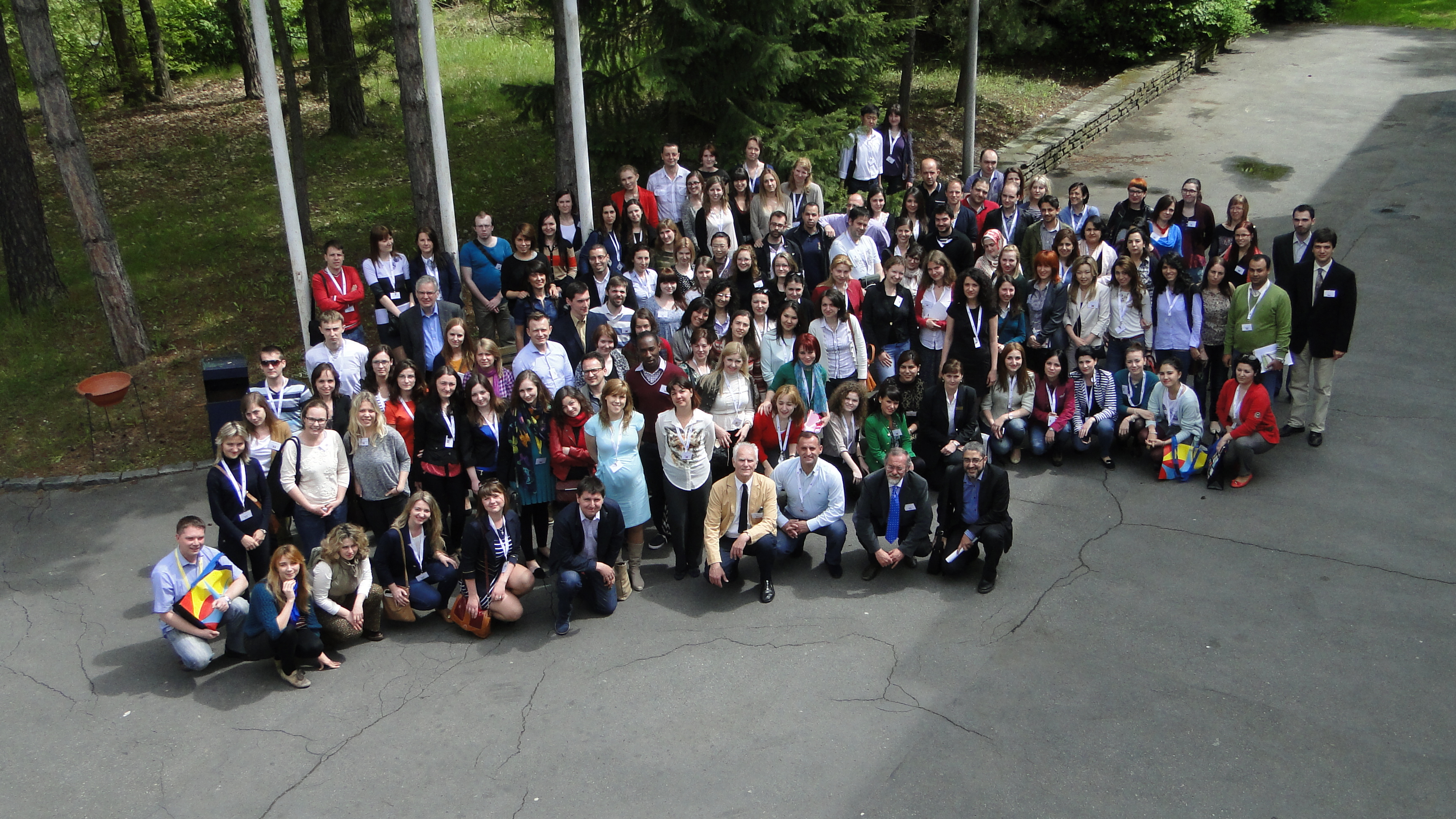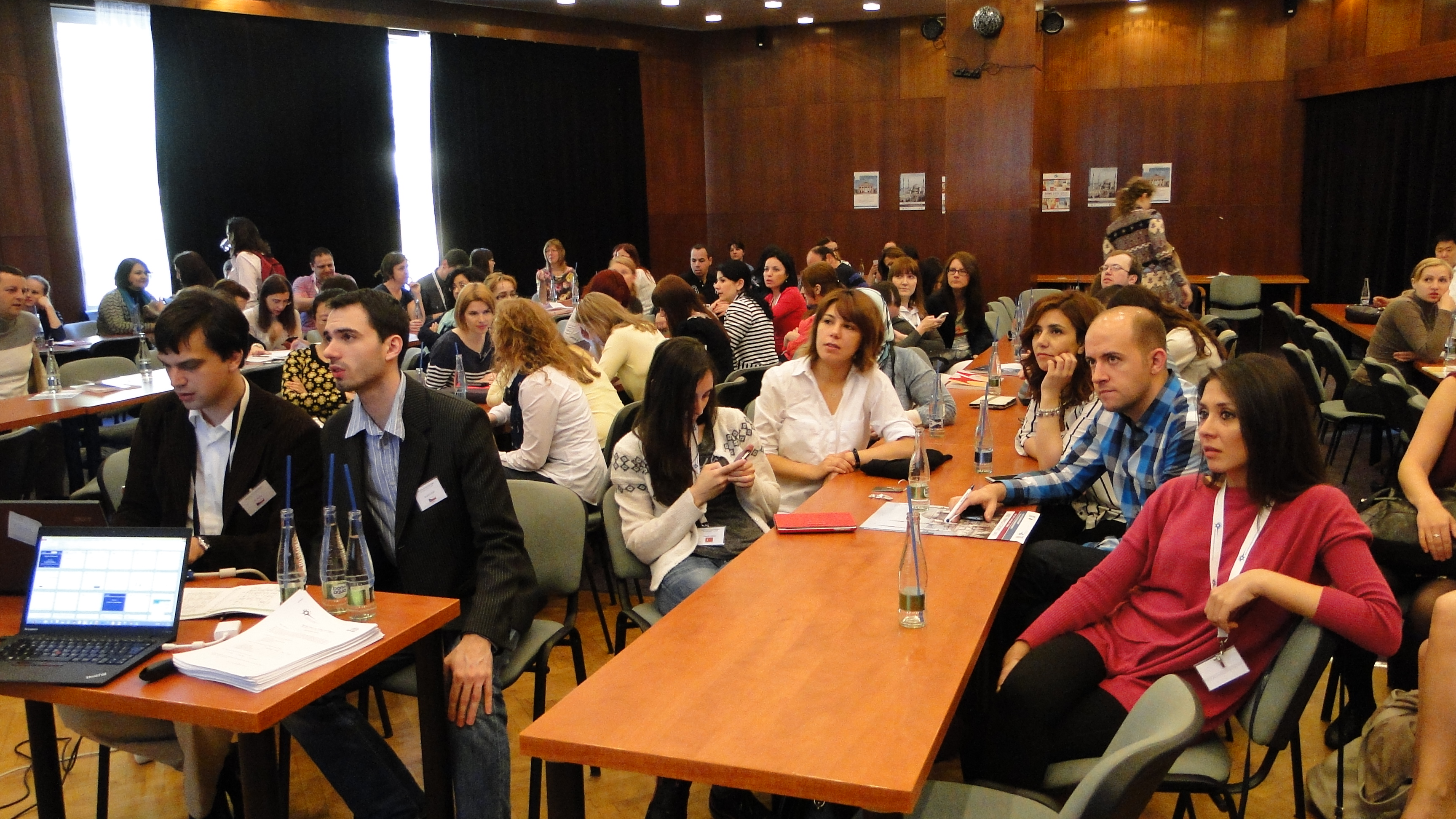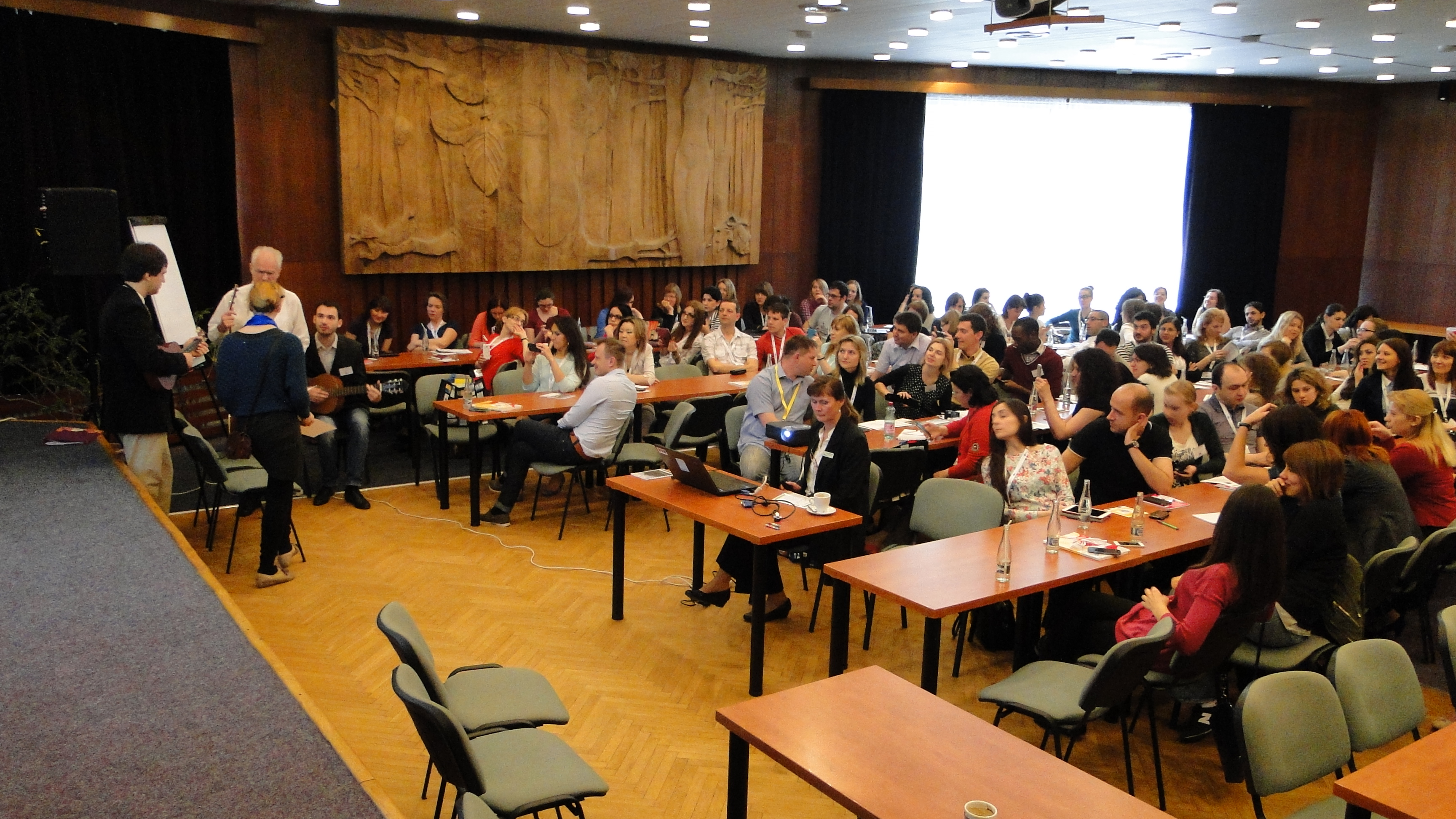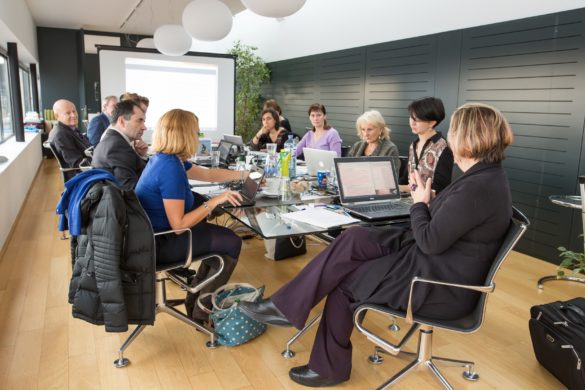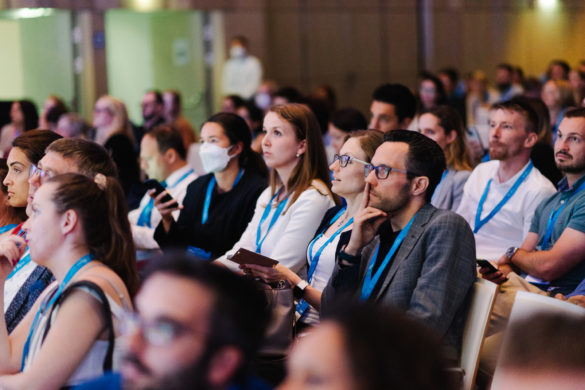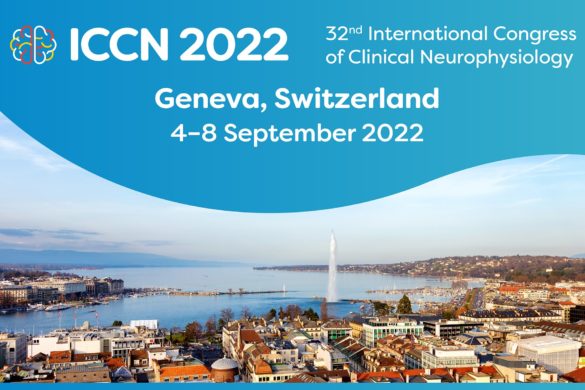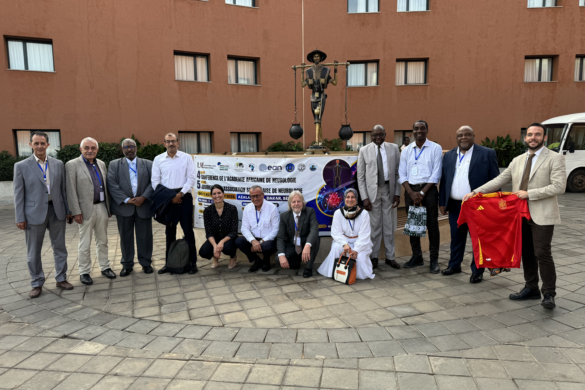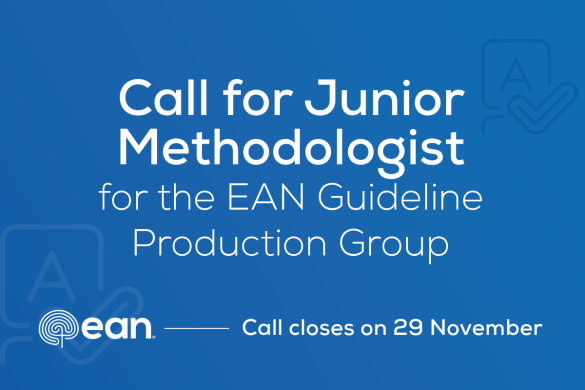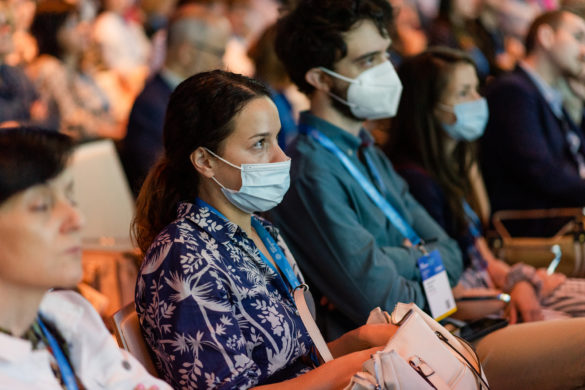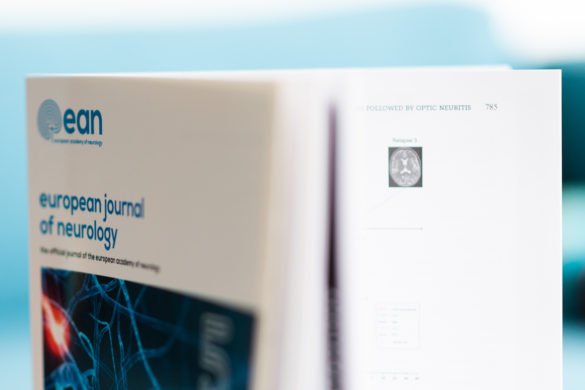by Pavel Kalvach and Magda Dohnalová
Few years ago we were proud, when Prof. Richard Hughes called the Spring School for Young Neurologists one of the brightest stars on the sky of the EFNS. Also in 2014 Magda Dohnalová has given all the preparatory agenda maximal solicitude. It has brought final satisfaction of our 125 participants.
The tradition of these courses is already 15 years old. Permanently gaining in its popularity, this year the Spring School attracted attention of 190 interested colleagues. We were much sorry for having been forced to refuse 60 applications due to capacity reasons. Traditionally the highest interest was from Russia – 22, Ukraine – 16 and Romania – 14. Large increase of applications we could see from Portugal – 12 and Turkey – 10. After this years‘ course we can look over a total list of more than 1350 colleagues who have altogether taken part in our 15 runs.
As usually we had again also observers form extra-European countries, delegates from mediterranian Africa and altogehter 125 participants. Here is an overview: Albania: 2, Armenia: 3, Azerbaijan: 1, Belarus: 4, Belgium: 1, Bosnia and Herzegovina: 1, Bulgaria: 2, Croatia: 3, Czech Republic: 3, Denmark: 3, Egypt: 2, Estonia: 4, Finland: 1, FYRO Macedonia: 2, Georgia: 4, Germany: 3, Greece: 4, Italy: 3, Kenya: 1, Kyrgyztan: 2, Lithuania: 1, Moldova: 7, Morocco: 1, Norway: 1, Palestine: 1, Poland: 5, Portugal: 8, Romania: 7, Russia: 14, Slovakia: 2, Sovenia: 2, Spain: 4, Sweden: 1, Tunisia: 2, Turkey: 7, UK: 2, Ukraine: 6, Uzbekistan: 5
Interestingly, similarly like on other occasions a strong feminisation of our specialty could be observed. Ninety seven ladies compared with twenty eight males were present.
According to our questionnaires more than one half have learned about our course from friends, something less than one half from EFNS website and only 8 persons from Neuropenews.
Participants had the opportunity to listen to high quality lectures on the following topics:
Modern neuroimaging has been introduced in its Magnetic resonance aspect by Jiří Keller. From spin-echo to tractography. Karl Herholz, chief of the PET department in Manchester, demonstrated possibilities of metabolic observations by FDG, as well as studies measuring amyloid tracers. Luigi Simonetti guided a tour through possibilities of CT and MRI in acute setting of stroke. A special topic has been contributed by Abdelilah el Barzouhi from Leiden, who demonstrated two profound studies on the successes of surgery in vertebrogenic disorders. Both in clinical outcome, as well as in the neuroradiological documentation of „removed“ disc protrusions, surprising results were provided.
Movement disorders were lectured by two representatives of The Movement Disorders Society. Wassilios Meissner from Bordeaux spoke on non-motor symptoms in Parkinson’s disease and Alexander Storch from Dresden gave an excellent review on treatment of Parkinson’s disease.
Acute neurology in intensive care units was analysed by Ronny Beer. His two main topics Basics of the ventilatory care and Nutrition in neurocritical care were very didactic and comprehensive. From the same department in Innsbruck Prof. Erich Schmutzhard lectured on Sepsis, Bacterial meningitis and on Poliomyelitis. His special rhetoric skills, profound knowledge and enthusiasm attracted attention of listeners again from the first moment to the last second of his talk.
Martin Rakusa from Maribor supplied our audience by two major topics. In terms of medical practice and science by Management of pain – neuralgic, low back and neuropathic variant; in organizational terms by news and information from the section of the European Association of Young Neurologists and Trainees. So in total speakers were from Austria, Czech Republic, France, Germany, Great Britain, Italy, The Netherlands and Slovenia.
On the last day – according to our tradition – one lecture was devoted to Educational systems in Neurosciences, by Dr Helena Rösslerová on behalf of Lundbeck International Neuroscience Foundation, and the next one has brought an overview of the activities of WHO in the field of Neurosciences. This last one was given by Dr Alena Šteflová, chief of the Prague affiliation of WHO.
The audience was very well prepared from the beginning, a consequence of their active selection for application.
56% of participants found the quality of presentations excellent and a similar number were fully satisfied with the clarity of content. Next 34 and 39 % respectively found these two aspects as good. We were glad that 96% of evaluations quoted their free approach to putting questions.
Besides of our specialized scientific programme, most participants underwent one evening a tour with climbing on the hill of Bezděz, to visite a ruine of a big castle dominating the countryside and one evening we had a visite to the castle Mělník. This modern castle stays at the confluens of two rivers – Vltava and Elbe and this cultural programme completed nicely the general atmosphere of the course. On the remaining last evening many participants had friendly discussions, comparing professional as well as general life in their countries and others have learned a lot of songs in different languages and melodies. Only short moments have remained over for short walks along the romantic lake.
With this 15th course one great period of the Spring Schools 2000-2014 has been coronated. Altogether 122 faculty speakers from 21 countries have lectured in 29 particular topics. Among the participants most have come from Russia (143), Romania (138), Ukraine (110) and Poland (109). These many and in the same way others from those next 46 countries always expressed their satisfaction and appreciation for these EFNS generous endeavours.
Pavel Kalvach is Professor of Neurology at Charles University in Prague, Czech Republic and organiser of the Spring School.
Magda Dohnalová is working for EFNS in Prague, Czech Republic and organiser of the Spring School as well as the Department to Department co-operation Programme.

